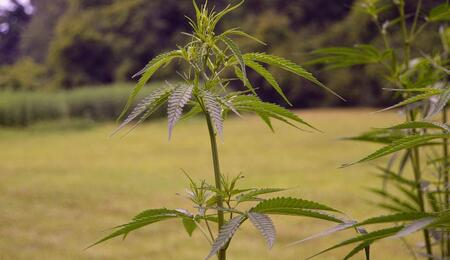What's Up With the Weed Pass?

The infamous green city has been an icon of Cannabis tolerance in the world for decades - the rendezvous point for the marijuana-loving community, welcome to enjoy all aspects of the plant in peace.
The infamous green city has been an icon of Cannabis tolerance in the world for decades - the rendezvous point for the marijuana-loving community, welcome to enjoy all aspects of the plant in peace.
The infamous green city has been an icon of Cannabis tolerance in the world for decades – the rendezvous point for the marijuana-loving community, welcome to enjoy all aspects of the plant in peace. However, over recent years this liberal approach and the freedoms it entailed have slowly been eroding, placed under continuous attack by conservative and right-wing political parties. This distasteful, irrational and counter-intuitive move slowly culminated into what most activists had originally rejected as unthinkable: the 'wietpas' or 'Club Card', commonly referred to as the 'weed pass'. Many of you will have heard of this discriminatory measure; for those of you who haven't, the weed pass was set up by the Dutch government in order to reduce 'incidents' linked to Cannabis sales to foreigners, and their consumption of the drug. This was mainly due to issues occurring in the southern provinces, linked to drug tourists driving to Holland to purchase Cannabis before driving back over the border. The idea was simple: limit coffeeshop access to Dutch residents only, while obligating said residents to officially register as a Cannabis smoker to obtain a (weed) pass, which allows them to purchase their herb or hash of choice. This measure was actually put in place in October 2011 in the southern provinces, leading to the obvious increase in crime one would expect from pushing the industry further underground. Even the most fervent weed pass supporters started backtracking lately, no longer able to justify the mounting police costs and increasingly loud civil outcry for things to return to the way they were before. It was heartwarming to see the slow rise in consciousness regarding this issue throughout the country. Even the media, slowly but surely, started taking an anti-weed pass stance, communicating this through their newspapers and during the evening news. The arrival of new elections for the Dutch parliament in September could only mean one thing: the weed pass was going to get it! And boy, did it ever… the weed pass is now officially dead. Following the formation of a new coalition government, the decision was officially made to lay the weed pass to rest, once and for all, putting it down in writing in the coalition's manifesto (published on October 29th).
It was heartwarming to see the slow rise in consciousness regarding this issue throughout the country. Even the media, slowly but surely, started taking an anti-weed pass stance, communicating this through their newspapers and during the evening news. The arrival of new elections for the Dutch parliament in September could only mean one thing: the weed pass was going to get it! And boy, did it ever… the weed pass is now officially dead. Following the formation of a new coalition government, the decision was officially made to lay the weed pass to rest, once and for all, putting it down in writing in the coalition's manifesto (published on October 29th).
Before you start celebrating the death of this disastrous measure, though, it is important to underline the exact content of this agreement concerning coffeeshops. It states that, whereas the pass in itself is gone, access to coffeeshops is still to be limited to Dutch residents alone, that the fight against drug tourism and organized drug crime will carry on, and that THC content shall remain bound to a maximum level of fifteen percent.
So does this mean that tourists are now definitely going to be barred from enjoying the mouth-watering delicacies on offer in the Dutch capital? Well, no. The agreement mentions that a flexible approach will be applied, with each city keeping the ability to apply these measures in the way they see as most suitable. Specifics are not mentioned in the document, making it quite vague, but it did not take long for Amsterdam mayor Van der Laan to state that tourists will remain able to access the city's 220 coffeeshops, come January 2013. Despite a quick response from an officer of the Ministry of Justice stating that Amsterdam would not be exempt, Mayor Van der Laan was quick to maintain his position during a televised interview, implying that he was more aware of Minister of Justice and Defense Ivo Opstelten's position on the subject than his own officer seemed to be. The situation is far from definitive. Too many loose ends still need to be tied and the country remains far from a reasonable, legal, regulated Cannabis market. However, the good news is that everyone remains welcome to come and enjoy the pleasures of Cannabis in its European capital.
S
Soft Secrets



